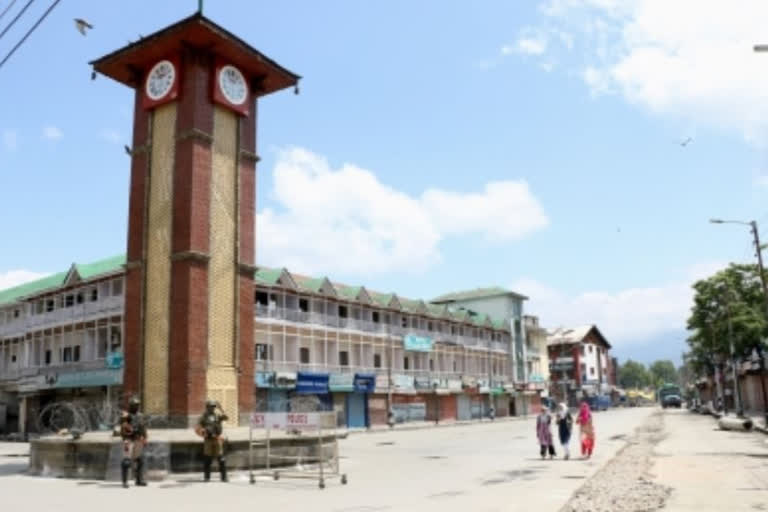Srinagar: Following the abrogation of Article 370, the BJP government in Centre set up the delimitation commission under the Jammu and Kashmir Reorganisation Act, 2019 to redraw the boundaries of assembly and parliament constituencies in the Union Territory.
Formation of the Commission
Headed by retired Supreme Court judge Ranjana Prakash Desai, the commission was set up in March 2020 and was assigned to complete the delimitation exercise within a year but when the commission could not complete the exercise within the timeframe, its term was extended till March 2022. Initially, the delimitation commission was set up to redraw the constituencies of Assam, Manipur, Nagaland, Arunachal Pradesh and Jammu and Kashmir, but when its term was extended for a year the north-eastern states were excluded from its mandate.
Political parties oppose the Commission
Since its formation, the commission has been criticised by the Jammu and Kashmir based political parties especially by National Conference and PDP. These parties argued that the commission was formed under the Jammu and Kashmir Reorganisation Act 2019, which these parties have challenged in the Supreme Court.
The parties also argued that the delimitation in Jammu and Kashmir was stayed by the Supreme Court till 2026 and also the National Conference government had in 2002 frozen the delimitation till 2026. The last delimitation was carried out in 1994-95 during the president’s rule in Jammu and Kashmir when the seats of the erstwhile State Assembly were raised from 76 to 87. Jammu region’s seats were increased from 32 to 37, Kashmir’s from 42 to 46 and Ladakh’s seats increased from two to four.
Despite opposition from political parties in Jammu and Kashmir barring BJP, the commission carried on with its exercise and visited the union territory twice in 2021 and conducted several meetings with political parties, social activists and other stakeholders in Kashmir and Jammu regions. PDP boycotted the commission as it says the commission was formed under the Jammu and Kashmir Reorganisation Act which is unconstitutional.
Political parties also argue that the delimitation must be carried out as per the 2011 census, however, the Commission has said that geography, demography, accessibility and communication are the criteria on which it will do the delimitation.
Redrawing of seats
The erstwhile state of Jammu and Kashmir had 111 seats including 24 reserved for PoK and elections were being held for 87 assembly seats, In the previous Assembly, Kashmir had 46 seats, Jammu 37, and Ladakh four. After the bifurcation of the erstwhile State into two UTs of JK and Ladakh, the Assembly seats were reduced to 83 seats as four seats of Ladakh got scrapped as this UT will have no legislature.
Under the Jammu and Kashmir Reorganization Act the number of assembly seats in Jammu and Kashmir will be increased from 107 to 114 including 24 seats which are reserved for Pakistan occupied Kashmir (PoK) while the election will be held for 90 seats. Besides the commission's own members, five Lok Sabha members of Jammu and Kashmir, three from the National Conference and two from BJP are its associate members.
On December 20 last year, the commission shared its first draft with associate members and proposed six additional assembly constituencies in the Jammu division and one in Kashmir. This proposition will increase the number of seats in Jammu from 37 to 43 and in Kashmir from 46 to 47. Of these 90 seats, nine seats will be reserved for Scheduled Tribes (STs) and seven seats for Scheduled Castes (SCs).
On February 4, the commission shared its second draft with the associate members which gave a detailed description of how the assembly and parliamentary constituencies have been redrawn across the Union Territory.
The second draft showed a major shake-up of all assembly segments and parliamentary seats which has also shaken up the previous electoral structure of all former legislators. All the constituencies have been redrawn with altered boundaries. 28 constituencies have been created anew and renamed while19 existing constituencies have been deleted.
The new assembly segments drawn by the panel in Kashmir will have a mean population of 1.46 lakh against only 1.25 lakh in Jammu province. The commission has reserved nine seats for STs —six in the Jammu division and three in Kashmir Division and seven for SCs in the Jammu division.
